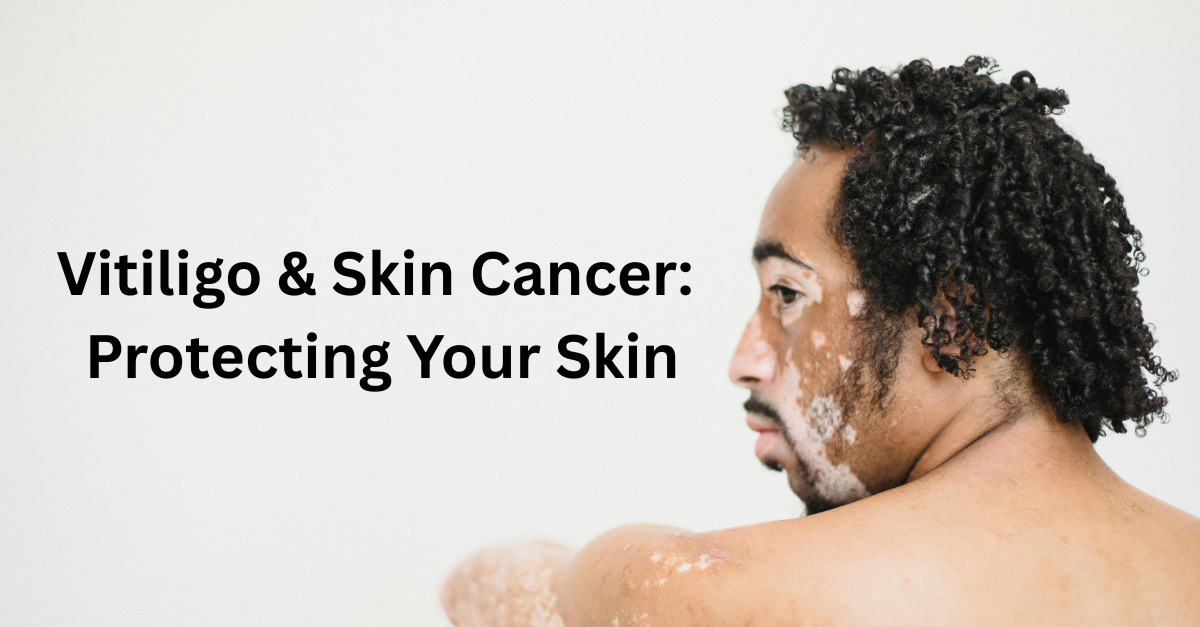
Understanding The Risks and Protecting Your Skin
Introduction
Vitiligo, an autoimmune condition marked by depigmented patches of skin, has often sparked questions beyond its visible symptoms, particularly its connection to skin cancer. Does the absence of melanin expose individuals to greater UV risk? Or does the hyperactive immune system in vitiligo act as a protective mechanism? Fortunately, scientific studies—especially from European cohorts—are beginning to illuminate the facts.
What the Research Says: Is There a Link?
Surprisingly, recent European studies suggest that vitiligo may reduce skin cancer risk, particularly melanoma and keratinocyte carcinomas.
A UK population-based cohort study of over 15,000 vitiligo patients revealed a 38% reduced risk of developing all skin cancers, including:
-
61% lower risk of melanoma
-
33% lower risk of basal cell and squamous cell carcinomas
(Cai et al., JAMA Dermatology, 2023; PMID: 37146674)
Similarly, a Danish nationwide registry study (which tracked patients over two decades) found no elevated risk of either melanoma or keratinocyte cancer in vitiligo patients. Even those receiving phototherapy showed no significant increase in skin cancer incidence (Løvendorf et al., Journal of the European Academy of Dermatology and Venereology, 2021; PMID: 34409316).
A 2024 review in Pigment International, a European-focused dermatology journal, proposed a compelling explanation: the same immune mechanisms that destroy melanocytes in vitiligo may enhance immunosurveillance, leading to early destruction of abnormal or potentially cancerous skin cells (Singh et al., Pigment International, 2024).
Phototherapy: Is It a Hidden Risk?
Since UV-based treatments like narrowband UVB and PUVA are common in vitiligo care, concerns about carcinogenic exposure are understandable. However, a European-led meta-analysis involving over 228,000 patients concluded that no significant increase in skin cancer risk was found in vitiligo patients undergoing phototherapy (Sticherling et al., Photodermatology, Photoimmunology & Photomedicine, 2021; PMID: 34762747).
This reinforces the safety of these treatments, especially when monitored properly, in European clinical practice.
So, Should Vitiligo Patients Still Be Cautious?
Absolutely, yes. While your immune system might be on high alert, depigmented skin still lacks melanin, which naturally helps protect against UV rays.
Here’s how to protect yourself:
-
Use broad-spectrum sunscreen (SPF 30+ minimum)
-
Cover up with hats and long sleeves
-
Avoid direct sun between 11:00–15:00
-
Schedule regular skin checks, especially if you’re undergoing UV therapy or have a family history of skin cancer
Conclusion: A Complex Relationship
Vitiligo doesn’t increase your risk of skin cancer and may even reduce it. That’s the silver lining emerging from robust European and global studies. But that doesn’t mean throwing caution to the wind. Your skin still needs protection, and your health deserves proactive care.
Understanding the science arms you with the power to live boldly, and safely, in your skin, vitiligo and all.




